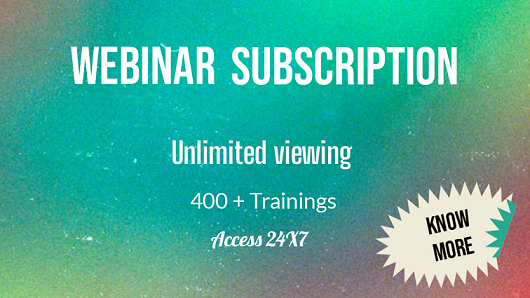Use Narrow Limit Gauging to Reduce Inspection Costs

Instructor:
William Levinson
Product ID: 706311
Training Level: Intermediate
- Duration: 60 Min
Use Coupon : ELF2025 Valid till 24-Dec-2025

Why Should You Attend:
Inspection is a mandatory but non-value-adding activity that should be minimized consistent with the need to protect the internal or external customer from poor quality. Attribute (pass/fail) gauging is highly inefficient, in terms of the necessary sample size, to assess quality at very low nonconforming fractions (i.e. very good quality).
When certain conditions are fulfilled, however, narrow limit gauging, which relies on tightened acceptance limits to assess the quality of a sample, can reduce enormously the required sample size and therefore the cost of inspection. Attendees will receive a pdf copy of the slides and notes, and also an Excel spreadsheet with worked examples that can be copied and modified for other sampling applications.
Areas Covered in the Webinar:
- Traditional attribute sampling plans (ANSI/ASQ Z1.4, formerly MIL-STD 105) require very large samples as the acceptable quality level (AQL) decreases. A sample of 1250 is required at the best (0.01%) AQL.
- Alternatives such as double sampling, multiple sampling, and sequential sampling can decrease the average sample number (ASN) to a certain degree.
- Zero acceptance sampling, a form of discovery sampling, can reduce the sample size even further but at the cost of an elevated risk of wrongly rejecting lots at the AQL.
- Narrow limit gauging tightens the acceptance limits and makes it possible to detect increases in the nonconforming fraction with much smaller samples.
- Prerequisites are as follows:
- The critical to quality (CTQ) characteristic must be measurable as a real number (variables data) to (1) quantify the process standard deviation and (2) assess the assumption that the data follow a normal or bell curve distribution.
- The data must follow the normal distribution.
- Changes in the outgoing quality are due entirely to changes in the process mean (as opposed to process variation or other factors).
- It must be possible to set the go/no-go gage's acceptance limits quantitatively, e.g. with gage blocks (as but one example).
- If the above conditions are fulfilled, the acceptance limits are compressed by t process standard deviations. If for example the part's nominal is 200 mils, and its specification limits are 196 and 204 mils respectively, and the process standard deviation is 1 mil, and we select t=1 standard deviation, the gage is set to accept parts between 197 and 203 mils.
- This does not mean that otherwise conforming parts are actually rejected; the idea is to decide whether to accept or reject the lot. Rejected lots are not usually discarded, but are instead 100% inspected to remove the genuinely nonconforming parts.
- The result is a narrow limit gauging plan whose sample size is considerably smaller than that of the original ANSI/ASQ Z1.4 plan. The required sampling can be reduced substantially depending on how much we compress the acceptance limits.
- Plots of the original (ANSI/ASQ Z1.4) and new (narrow limit gauging) operating characteristic (OC) curves on the same graph assure us and the customer that the new plan provides equivalent protection against poor quality.
Who Will Benefit:
- Quality managers, engineers, technicians, and practitioners with responsibility for attribute (pass/fail) inspections for which go/no-go gages can be set for quantitative acceptance limits

William Levinson
Principal Consultant, Levinson Productivity Systems
William A. Levinson, P.E., is the principal of Levinson Productivity Systems, P.C. He is an ASQ Fellow, Certified Quality Engineer, Quality Auditor, Quality Manager, Reliability Engineer, and Six Sigma Black Belt. He is also the author of several books on quality, productivity, and management.
Topic Background:
Narrow limit gauging is described by Schilling, Edward. 1982. Acceptance Sampling in Quality Control. New York: Marcel Dekker. Advances in software (such as spreadsheets and also statistical software such as Minitab and StatGraphics) have made the original method easier to use and also somewhat more effective.
More Training By Experts
Refund Policy
Our refund policy is governed by individual products and services refund policy mentioned against each of offerings. However in absence of specific refund policy of an offering below refund policy will be effective.
Registrants may cancel up to two working days prior to the course start date and will receive a letter of credit to be used towards a future course up to one year from date of issuance. ComplianceOnline would process/provide refund if the Live Webinar has been cancelled. The attendee could choose between the recorded version of the webinar or refund for any cancelled webinar. Refunds will not be given to participants who do not show up for the webinar. On-Demand Recordings can be requested in exchange. Webinar may be cancelled due to lack of enrolment or unavoidable factors. Registrants will be notified 24hours in advance if a cancellation occurs. Substitutions can happen any time. On-Demand Recording purchases will not be refunded as it is available for immediate streaming. However if you are not able to view the webinar or you have any concern about the content of the webinar please contact us at below email or by call mentioning your feedback for resolution of the matter. We respect feedback/opinions of our customers which enables us to improve our products and services. To contact us please email [email protected] call +1-888-717-2436 (Toll Free).










